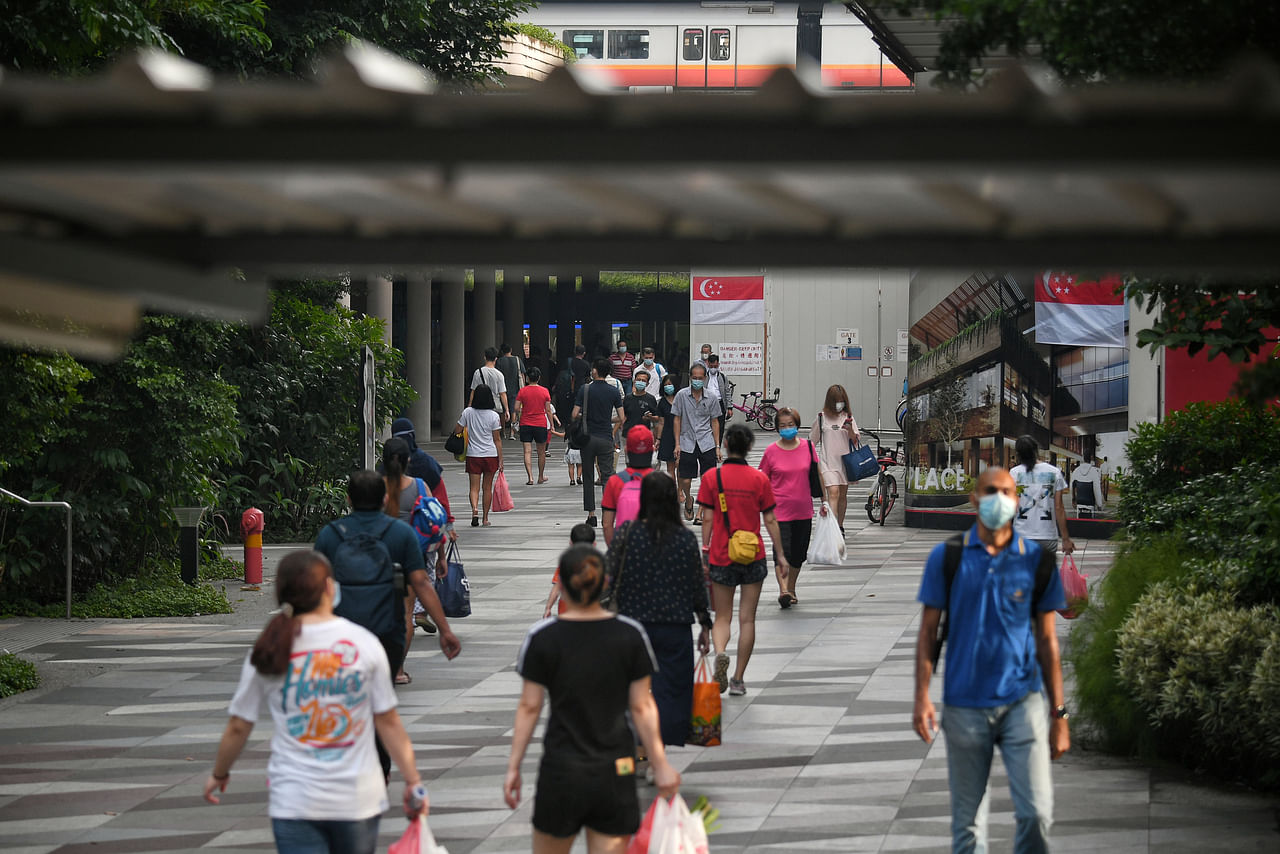Parliament: Singapore must hold true to its values even as it adapts to change, says DPM Heng
Sign up now: Get ST's newsletters delivered to your inbox

Singaporeans must remain rooted to the country's values and identity, and sense of unity as a people, said Deputy Prime Minister Heng Swee Keat.
ST PHOTO: KUA CHEE SIONG
Follow topic:
SINGAPORE - Despite the global crisis and accelerated change caused by Covid-19, Singapore can survive and thrive if it embraces change with courage and confidence, while holding true to the values that have helped the country to progress all these years, Deputy Prime Minister Heng Swee Keat told Parliament on Monday (Aug 31).
Speaking during the debate on the President's Address, DPM Heng noted that the economy will change at a much more rapid pace than before, with disruption to jobs becoming more common.
But as Singapore evolves its social safety nets and strives to keep inequality in check, Singaporeans must remain rooted to the country's values and identity, and sense of unity as a people, said DPM Heng.
Values like openness, multiculturalism and self-determination have served Singapore well in its journey and remain crucial, but it will take more effort to maintain this sense of common purpose as society becomes more diverse, said Mr Heng.
New differences along the lines of identity, socio-economic status and political beliefs will emerge, while there will always be different perspectives on subjects like race, language and religion, and the rights and obligations of citizenship.
"It is essential that we rise above our differences, and find common ground," he said.
"We may not always agree, but we cannot afford to let our disagreement turn into division. Otherwise, change will cause a rupture in society as we have seen elsewhere."
In his speech, Mr Heng gave the assurance that the Government will adapt Singapore's social safety nets to sustain the promise of progress for every Singaporean.
A job remains the best form of welfare, he said, adding that the Government will continue to invest in people and match them to new opportunities to bring out the best in them.
At the same time, social spending has tripled over the last 15 years, and this is set to rise further as the population ages.
The shift to "gig economy" jobs, for instance, means Singapore's support for self-employed persons must evolve, even as work to uplift lower-wage workers continues.
While the Government will keep an open mind to ideas that have been proposed, such as a minimum wage, universal basic income and unemployment insurance, people must recognise that there are no magic bullets and that each of these ideas have their merits but also unintended effects, he said, cautioning against "what may appear to be costless solutions".
And while social safety nets will be strengthened, this must be done in a way that reinforces - and not undermines - individual effort, said Mr Heng.
This should also be funded equitably and sustainably, and strengthen people's capacity to not only succeed, but to help others succeed as well.
"A social safety net cannot become a set of shackles. It should not hold down those who started with less. It should not create dependency, such that people who get fish for today never learn how to fish for food tomorrow," he said.
"It should not breed an entitled class who ask: What more can you do for me?"
Mr Heng said a well-designed social safety net protects the vulnerable, invests in human and societal capital, and provides a means for those who fall down to bounce back.
"It gives hope and builds confidence. It believes in people and lifts the human spirit," he added. "It supports every generation to have aspirations and dreams, and for everyone to ask: "What more can we do for one another?"
Mr Heng was also glad that amid the pandemic, many have stepped up to support others. He cited the Masks Sewn With Love project, which saw volunteers sew over 100,000 masks for vulnerable families.
How well Singapore emerges from the present crisis depends on its ability to adapt while holding true to its values, said Mr Heng, who added the country's premium resides in its ability to work with like-minded partners to build a better world, both for Singaporeans and people around the world.
"We are both a city-state and a global metropolis, maintaining this "dual identity" will not be easy," he said. "But as long as we are clear about our values and what holds us together, it will be a source of strength that opens up new opportunities."
Mr Heng emphasised the Government's commitment to building deeper partnerships with Singaporeans, citing the Singapore Together movement that it launched last June to harness diverse ideas and work with people to shape a shared future.
He shared how his fellow East Coast GRC MPs recently engaged Ms Samantha Thian and a group of volunteers who regularly clean the beach at East Coast Park, and followed up with them last Saturday via videochat to discuss ways to create a more sustainable Singapore.
"I am very impressed by their passion and commitment (and) we agreed to work together to turn their good ideas into action," said Mr Heng.
Such partnerships help foster a culture of respect and expand the common space, strengthening Singapore's capacity to change together, he noted.
"We want to build on these efforts too, as we recover from Covid-19," he said, adding that this was why the Emerging Stronger Conversations have been convened to give Singaporeans a shared opportunity to reflect on their Covid-19 experience and articulate how they can take Singapore forward together.

